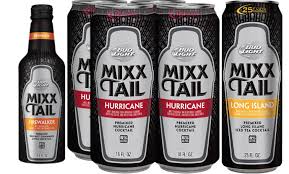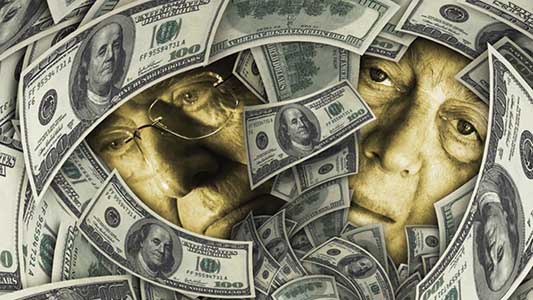In the Doghouse
Search
In the Doghouse
A-B InBev's New Youth-Friendly Alcopop
February 18, 2015
Anheuser-Busch InBev (A-B InBev) is targeting youth once again with fruity, soda-like alcopops. It would also love to grab some of the market share it's lost to spirits with MixxTail, its latest flavored malt beverage that mimics mixed drinks such as Long Island Iced Tea and Hurricane. Along with its popular Bud Light Lime-A-Rita alcopop line, Mixx Tail is intended to cash in on the popularity of the Bud Light brand among underage drinkers. A-B InBev is already one of the top alcohol brands among youth, with three products in the top 10 consumed by underage drinkers; Bud Light is number one.
A-B InBev has stated that the new product was created specifically with millennials' preference for fruity flavorsin mind. The product is clearly directed at even younger drinkers; teens are twice as likely as adults to drink alcopops. Though they're malt beverages, many alcopops contain higher levels of alcohol than beer, making them even more risky to youth. The Mixx Tail products are 8% ABV, and will come in 16-oz and 24-oz supersized cans. One 24-oz can would be equivalent to 3.2 standard drinks, enough to acutely intoxicate a 120-pound woman. Seventeen state attorneys general have referred to similar products as "binge-in-a-can," pointing out the public health and safety risk and the obvious targeting of youth.
While A-B InBev rakes in profits on its youth-oriented products, underage drinking causes more than 4,300 deaths each year and $27 billion in economic harm. It's time to stop the harm, and ban alcopops entirely.
Boston Mayor Walsh: Business Interests Before Public Health?
January 28, 2015Yet Walsh does have experience supporting effective alcohol policy, and his push for late-night bar hours is a 180-degree turn from that prior experience. As State Representative he sponsored and supported a bill banning alcohol ads from state property including the MBTA subway system, and continued supporting the policy as he ran his successful mayoral campaign.
As his mayoral term goes by, Walsh continues to increase his focus on business interests and away from public health and human services. Walsh's late-night bar proposal comes at the same time that the United States Olympic Committee (USOC) has selected Boston for its 2024 Olympic bid, largely due to business and political interests that drove the effort. Residents are skeptical that political leaders will be able to fund the Olympics without spending public money that should go toward housing and education.
Calling himself a long-time friend to the recovery community, Walsh also proposed a new Office of Recovery Services as part of his legislative agenda this year. He should reconnect with his friends in that community, and see how they feel about the effects of expanded late-night alcohol access, not only on members of their community but also on youth, college students, young adults, and local property owners. Public health advocates, including the recovery community, won't be silenced about the negative consequences of expanded late-night alcohol sales.
Koch Bros' American Future Fund Supports Stalled PA Privatization Effort
January 10, 2015
Privatization efforts in Pennsylvania have not succeeded for decades, despite election promises and incumbent threats, for good reason. State-controlled alcohol systems make sense on many levels. They bring much-needed funds to state coffers, and they help reduce consumption and harmful consequences. Based on analysis and findings from the U.S. Community Preventive Services Task Force, the Centers for Disease Control and Prevention recommends against privatization, which has a negative impact on public health. Increased consumption resulting from privatization results in increased alcohol-related harm and economic costs - to government, private businesses, and families.
Privatization proponents say the sale of the state's liquor stores will bring a boon to the economy, but any initial economic boon will soon be outpaced by the increasing costs of related harm, along with losses in state alcohol sales revenues. Any economic benefit will be seen by Big Alcohol and the Koch Brothers, while the public pays the price.
Pennsylvania has admirably withstood the onslaught of pro-privatization campaigns and influence over the years, but the Koch Bros. and Big Alcohol only need to win once for long-lasting harm to commence in Pennsylvania. States that privatize are very unlikely to reinstate monopolies on alcohol sales.
More Articles ...
Help us hold Big Alcohol accountable for the harm its products cause.
| GET ACTION ALERTS AND eNEWS |
STAY CONNECTED    |
CONTACT US 24 Belvedere St. San Rafael, CA 94901 415-456-5692 |
SUPPORT US Terms of Service & Privacy Policy |
Copyright © 2024 Alcohol Justice. All Rights Reserved.
Joomla! is Free Software released under the GNU General Public License.


